Something is terribly wrong with the way economic sanctions are being slapped on North Korea. When it comes to dealing with North Korea’s nuclear weapons program, international community especially the United Nations and the United States hope sanctions are a useful tool to bring Kim Jong-un to his knees. However, the reverse is true and now the world is at the mercy of the hermit kingdom.
Despite 7th round of U.N. sanctions since 2006, North Korea had launched its 19th ballistic missile this year, and conducted its 6th and most powerful nuclear test on September 3. Yet, the U.S. and UN Security Council are doing the same thing over and over again – sanctions – but expecting different results. What did Albert Einstein said about this type of people?
North Korea is under heavy U.N. sanctions and a strict arms embargo designed to impede the development of its banned nuclear and missile programs. Surprisingly, Kim Jong-un remains as fat as before while the hermit kingdom continues accessing the international banking system, not to mention the ability to develop nuclear weapons and ballistic missiles.

Instead of punishing Mr. Kim, the sanctions backfire and help the dictator’s propaganda instead. He is able to unite his people and justify that the evil America wanted to invade their country. And now his missile could strike U.S. military base Guam. So, how did he do it? Here’re 10 awesome tactics, most of them low-tech, how the North evades international sanctions.
{ 1 } Barter Trade
North Korea realized that the only way to cheat is to go back to the ancient ways of trading – the barter trade. The kingdom exchanges its coal and other valuable minerals for the goods it needs, such as weapons components and even luxury items. Because there’s no money changes hands, there’s literally no trace of money.
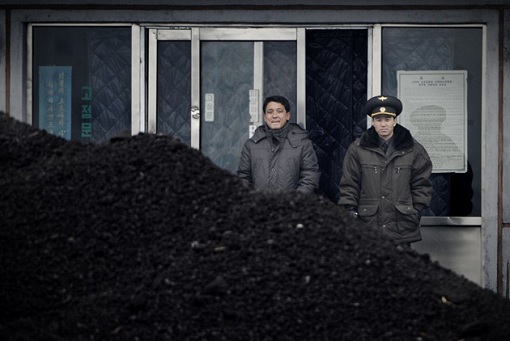
Although China has cut off coal imports from North Korea in accordance with sanctions imposed by the U.N. Security Council, the trade of the commodity continues. Later, U.S. Treasury department discovered that Chinese businessman Chi Yupeng allegedly used his company Dandong Zhicheng Metallic Materials to buy steel and anthracite coal from North Korea in exchange for nuclear and missile components.
{ 2 } Smuggling
Another low-tech way of doing business is definitely smuggling. Other countries, including China and third-world African nations, could easily do trades with North Korea by simply turning off their ships’ transponders before entering North Korean waters. They would then quietly load and transport goods from North Korea to another country, such as Russia, a nation next to North Korea.
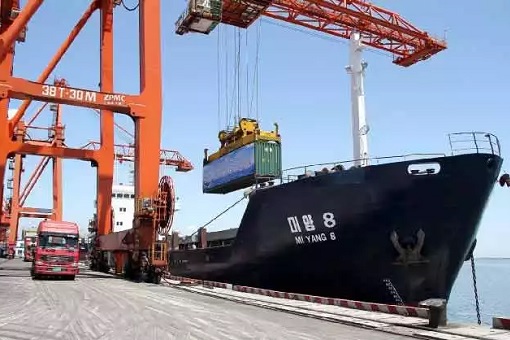
They can then legitimately claim that their goods were made and produced in Russia. The U.S. found out the hard way how Chinese ships loaded with North Korean coal would either stay in a Russian port for a period of time to make the whole transaction looks more legitimate, and then return to China. Alternatively, another vessel would pick up the goods and ships them.
{ 3 } Overseas Slave Labour
A 2015 U.N. report estimated that more than 50,000 North Koreans work around the world, generated between US$1.2 billion and US$2.3 billion for Kim Jong-un – every year. From Russia to Middle East to Malaysia, the cheap workers provide a steady flow of revenue to North Korea. The assassination of Kim Jong-nam in Malaysia has exposed how the North evades sanctions.
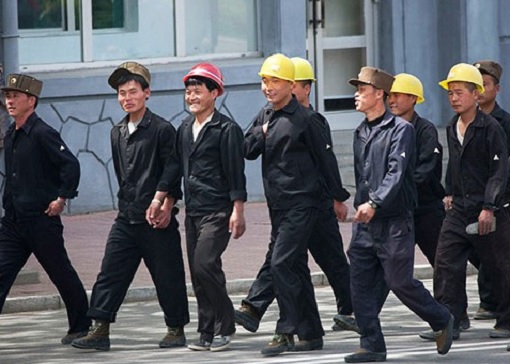
The visa-free access to Malaysia that North Korean citizens had enjoyed had provided Pyongyang with a base for both illegal procurement and financing activities that have enabled it to import sensitive materials and finance its WMD development. Thousands of North Korean workers were also exposed to be working in Kuwait, Oman, Qatar and the United Arab Emirates.
{ 4 } Diplomatic Cover
Using diplomats to engage in commercial activities is a powerful tactic employed by Pyongyang. Despite the public perception that North Korea has been reduced as the world’s most isolated country, Pyongyang actually maintains economic and diplomatic ties with 164 countries and has embassies in 47 since the kingdom was founded in 1948 after World War II.
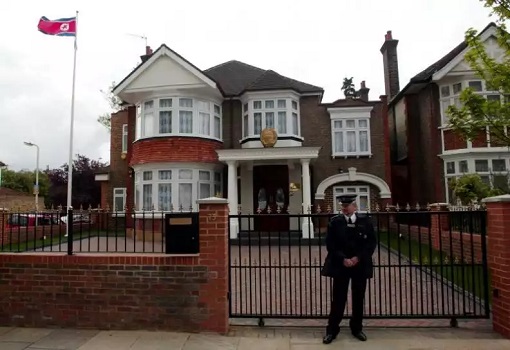
In fact, 24 countries have embassies in Pyongyang, including Sweden’s Embassy which acts as a proxy for Australia, Canada and the U.S. North Korean overseas diplomats would open multiple bank accounts – either under their own names, family members or front companies – to engage both legal and illegal trades.
{ 5 } Shipping Registration Fraud
To avoid international agency inspections, North Korea has renamed some of its Ocean Maritime Management Company vessels as domestic ships. Ocean Maritime Management was blacklisted by the U.N. in July 2014 after the North Korean freighter, Chong Chon Gang, was detained in Panama in 2013 for carrying arms, including two MiG-21 jet fighters, hidden beneath thousands of tonnes of sugar.
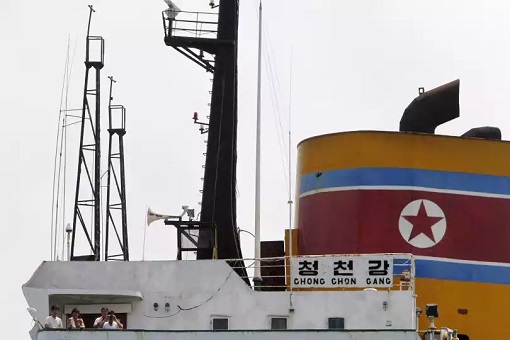
False documentation of ships which had been renamed and registered enables an unusual larger number of ships sailing around the world doing trading on behalf of North Korea. Kim regime would disguise its fleet of ships with foreign-owned vessels information, deceiving inspectors and ports into thinking they were foreign vessels, not North Korean’s.
{ 6 } International Front Companies
When an air shipment destined for Eritrea, included 45 boxes of battlefield radios and accessories, was seized in July last year, it was revealed that the radios were manufactured by a Malaysia-based front company called “Glocom”, which is controlled by the Reconnaissance General Bureau – the sanctioned North Korean intelligence agency.
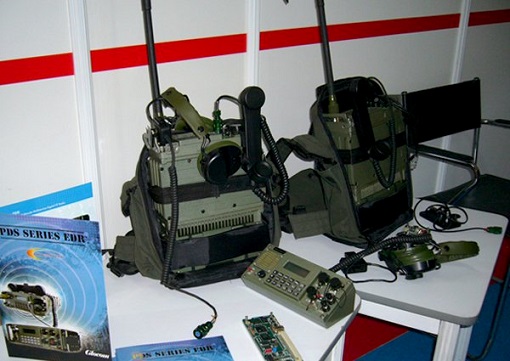
Glocom is a contact point for Pan Systems Pyongyang, which in turned has two Malaysian-based companies – International Golden Services Sdn Bhd and International Global Systems Sdn Bhd – as its front companies. Pan Systems Pyongyang was used to finance Pyongyang through a network of bank accounts in China, Malaysia, Singapore, Indonesia, and the Middle East.
{ 7 } Modified Equipment For Military Usage
Beijing was left speechless and was forced to defend its trade with North Korea after it emerged that Chinese-made trucks were used to display missiles in a huge military parade that was staged by Pyongyang. Turns out, Pyongyang creatively used a Chinese truck originally sold for hauling timber to transport and erect a Pukguksong-1 ballistic missile instead.
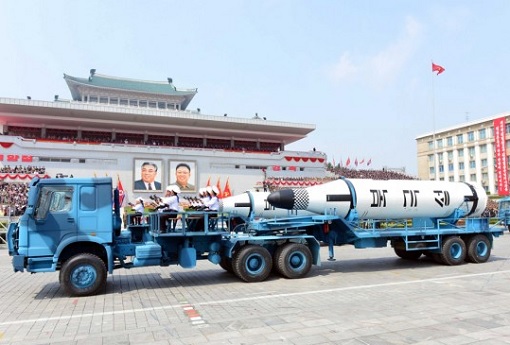
Caught red-handed, the North Korean military truck proudly displayed the “Sinotruk” logo. Sinotruk is the listed arm of China’s largest state-owned truck manufacturer. A Sinotruk sales official, of course, said he was not aware the company’s trucks were used in the military parade. After all, the equipment was not subject to embargo when it was sold to North Korea.
{ 8 } Arms Sales
United States might be the world’s military superpower but the world doesn’t revolve around America. North Korea continues selling arms and provide military training overseas, despite U.N. embargoes, especially to African countries such as Angola, the Democratic Republic of Congo, Eritrea, Mozambique, Namibia, Syria, Uganda, Tanzania, Botswana, Mali and Zimbabwe.
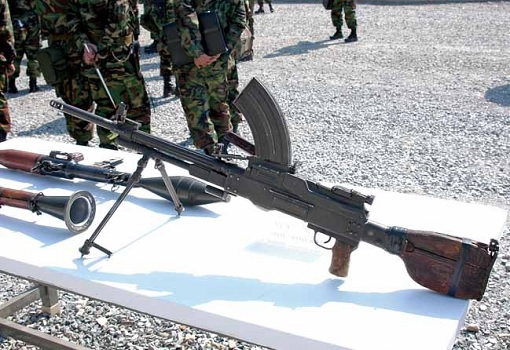
Two shipments from North Korea destined for the Syrian government agency responsible for chemical weapons have been intercepted in the past 6 months. Besides prohibited chemical, Kim regime is believed to be supplier of ballistic missile and conventional arms to not only Syria, but allegedly to Iran. Lately, the diplomatic relationship between Iran and North Korea has suddenly improved.
{ 9 } Restaurants
About 100 North Korean restaurants are scattered across about a dozen countries, with most of them in China, according to South Korea’s foreign ministry. The number has decreased from a peak of about 130 in 2013, mainly due to pressure from the international community to discourage visits. Still, the numbers remain significant.
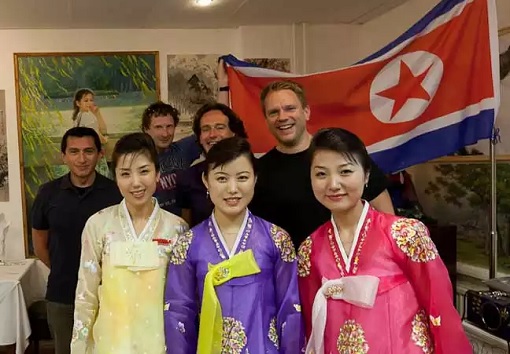
From Phnom Penh to Amsterdam, North Korean restaurants around the world provide authentic North Korean style of food and something else. Wearing traditional Korean Choson-ot dresses in bright colours; their existence was to raise foreign exchange, finance the activities of the North Korean embassy and to launder money for the North Korean government.
{ 10 } Cyber-Crime
If North Korea is such a pariah state, as painted by the West, then the North Koreans must be one of the smarted people on planet Earth. That’s because their band of elite hackers are one of the best. North Korea was reportedly behind a US$81 million cyber-theft of funds from Bangladesh’s account at the New York Federal Reserve last year.
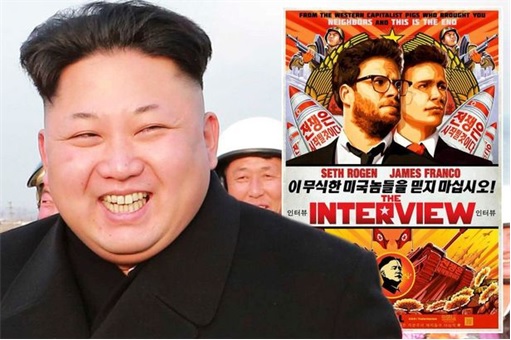
Thanks to Kim’s army of hackers, Sony Pictures and Hollywood surrendered tamely to North Korea and didn’t release the offensive film “The Interview”. The global ransomware attack known as “WannaCry” was also linked to North Korea. And now, Kim’s cyber troopers have a new way to earn money – mining and even stealing bitcoin – virtual currencies which both U.N. and U.S. couldn’t sanction.
There’s a reason why the Kim dynasty has survived not one, not two but three generations, despite decades of international sanctions led by the United States. Like it or not, they’re survivors. And they are highly experienced and well trained in moving money, people and goods, including arms and WMD material, across borders.
Other Articles That May Interest You …
- China Lectures USA – Stop Whining, Take Responsibility, Fix Your Own Problems
- Fatboy Kim Strikes Again! – Second Missile Over Japan, Guam Is Now Within Range
- Putin Lectures Trump – It’s Impossible To Scare Kim, You Can’t Intimidate Him
- Kim Gives Trump The Middle Finger – And There’s Nothing The U.S. President Can Do
- China Has Spoken – If US-South Korea Strikes North Korea, We Will Defend Kim
- How China Brilliantly Uses North Korea To Get What They Want From Trump
- Relax Mr. Kim, Here’s Why China Will Not Allow U.S. Attacks North Korea
- Airports With Zero Security – From Missing MH370 To Kim Jong-nam Assassination
- Hail Cyber Terrorism, Sony-Hollywood Surrenders Tamely To North Korea

|
|
September 19th, 2017 by financetwitter
|


|

|

|

|

|

|




























Comments
Add your comment now.
Leave a Reply